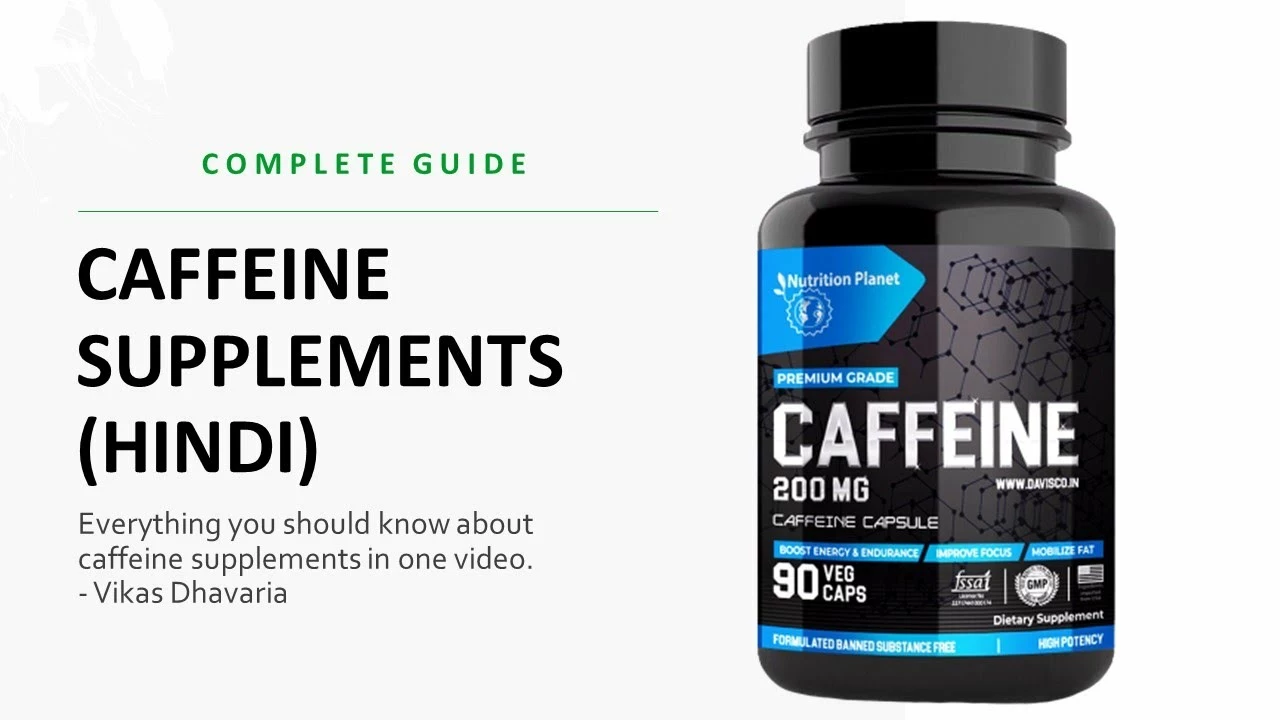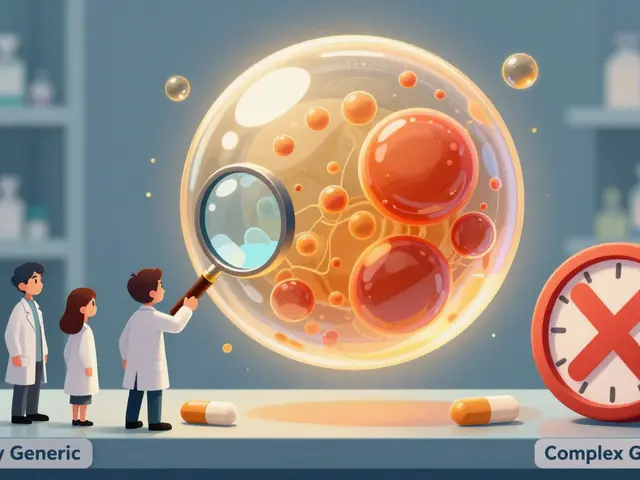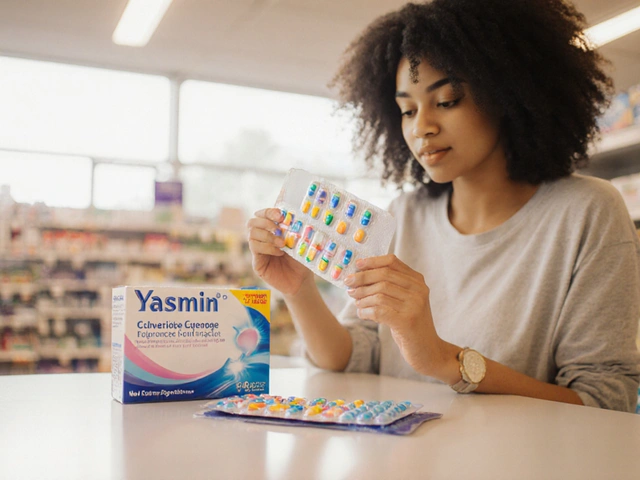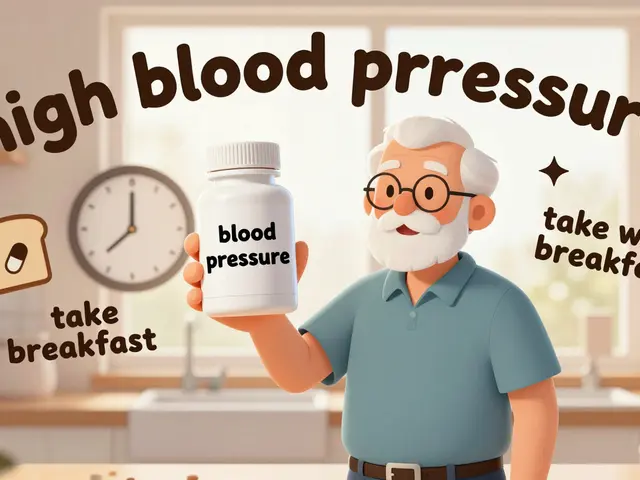 31
Jul,2023
31
Jul,2023
Procaine: A Solution to Your Health Problems
Before I start, I must point out; I am not a doctor. I'm just a health enthusiast who digs into scientific studies and experiments with various dietary supplements in an effort to maximize my overall health and wellness. Today, let me talk to you about a name that has been popping up in my browser feed and on my radar: Procaine. Now, you might be two steps away from furrowing your brows and questioning my sanity. No, it isn't a super sophisticated electric car. And no, it isn't an upcoming blockbuster movie either. Heck, it isn't even Clara's favorite dessert (which switches between New York cheesecake and macaroons)!
Procaine is a dietary supplement that is causing a stir in the health community due to its incredible benefits. It's an anesthetic that, believe it or not, numbs the discomfort of daily health problems when used appropriately. Come, let's dive deep into the world of Procaine, tease apart what's fact and what's fiction, and understand whether it's worth incorporating into your wellness routine.
The Magic of Procaine
If I told you that Procaine is a derivative of the famous "blood of trees," you might raise an eyebrow. But that's a fact! Procaine is derived from para-aminobenzoic acid (PABA), a substance found in the bark of several trees. Call it a mark of progress, or Mother Nature's sweet irony, that we are now bottling up tree blood to treat our ailments.
So, what exactly does Procaine do? In a nutshell, Procaine is an amazing anti-aging supplement. Researchers found that people who took Procaine dietary supplements reported improved energy levels, a sharper mind, better digestion, glowing skin, and more. Best part? It's been around for a while! So, its efficacy is backed by years and years of research and usage, unlike those supplement-du-jour, which quickly fade into oblividity. It's like that dependable old friend who has stuck around while others come and go.
Road to Procaine Perfection
Now we reach the part where I tell you how to incorporate Procaine into your lifestyle. Important note - Procaine isn't a one-size-fits-all wellness solution. The impact and effectiveness can vary from person to person. So, before you go gung-ho and buy a year-long supply of Procaine, I would highly suggest consulting your doctor or a licensed nutritionist, so you understand the right dosage for your body type and requirements.
Procaine is typically available as a capsule taken with meals. It's important not to exceed the recommended dose. And in case you do miss a dose, do not double the next one to make up for it; that’s just inviting more harm than good folks! Also, wouldn't recommend mixing Procaine with alcohol. I haven't had a taste of that cocktail, and I don't plan to, either.
Caveats and Conclusions
Now, onto the part you've inevitably been waiting for - the risks and considerations. Nothing in this world comes without caveat, Procaine included. Physical reactions can include nausea, pain at the insertion, rash, and dizziness. In some incredibly rare cases, patients may even have more severe reactions like breathlessness or seizures. If you experience these side effects or suspect an allergic reaction, it's essential to stop using the product immediately and contact a healthcare provider.
The bottom line is, Procaine has shown a lot of promises as a dietary supplement, and the health benefits are nothing to scoff at. Yet, it's vital to approach the use of any supplement with information, caution, and the consultation of a healthcare professional.
Looking back, I can’t avoid the fact that the cheesy phrase with which I end many of my blogs applies aptly here- Clara loves to remind me of it. "Health is wealth". The irony is not lost on me. I hope this journey into Procaine has been illuminating, and you’re able to make an informed decision with your health and wellness goals.






While the enthusiasm for novel nutraceuticals is commendable, the purported benefits of procaine merit a more rigorous appraisal. The existing literature, albeit limited, does not substantiate the sweeping claims of anti‑aging efficacy presented herein. Moreover, the biochemical profile of procaine, primarily as a local anesthetic, raises legitimate concerns regarding systemic exposure when administered orally. Prospective users would be well advised to prioritize evidence‑based interventions over anecdotal endorsements.
Yo, this s**t sounds like another hype tr**ck, all sparkle n' no substance. They c**t sell you a bottle of "tree blood" like it's some magic pill, but it's just a repurposed anesthetic. Don't be an idiot, read the fine print before you waste cash on this junk.
Hey folks, I get why the idea of a natural boost sounds appealing-who doesn’t want sharper focus and better skin? If you’re curious, start with a low dose and see how your body reacts before going all‑in. Pairing any supplement with a balanced diet and regular movement usually amplifies the benefits. And remember, it’s always wise to loop in a health professional to tailor it to your unique needs.
Sounds like a fad dont waste your money
One might argue that the allure of procaine stems more from marketing wizardry than from any intrinsic pharmacological virtue. Yet, to dismiss it outright without appreciating its historical context would be an intellectual oversight. The compound, originally synthesized for its anesthetic properties, does possess a molecular scaffold amenable to metabolic modulation-a fact neglected by many contemporary commentators. Conversely, the fervent proponents often neglect the paucity of longitudinal safety data, an omission that cannot be ignored. In short, the discourse surrounding procaine is a microcosm of the larger supplement debate: a tangled web of hope, hype, and half‑cooked science.
Imagine your wellness journey as a vibrant tapestry, each thread representing a choice-nutrition, movement, rest, and occasionally, a supplement like procaine. When woven thoughtfully, these threads can create a resilient fabric that supports vitality. However, dropping a single, untested strand might unravel the whole design. Approach procaine with curiosity, but anchor it in solid research and professional guidance. In this way, you’ll craft a masterpiece of health rather than a patchwork of guesswork.
In the grand theater of human aspiration, we often seek elixirs that promise eternity, and procaine has been thrust onto that stage with brazen bravado. Its proponents chant the mantra of rejuvenation as if reciting sacred verses, while skeptics hurl doubts like dark clouds across a sunlit sky. Yet, beneath the glittering veneer lies a molecule whose primary vocation is to numb tissue, not to restore youthful vigor. The notion that a local anesthetic could moonlight as an anti‑aging potion borders on the fantastical. Nevertheless, the allure of a shortcut to agelessness is a siren song that has seduced generations. To navigate this labyrinth, one must interrogate the empirical foundations with relentless rigor. Controlled trials, peer‑reviewed data, and transparent dosage guidelines constitute the compass we require. Absent these, we drift into the realm of myth, where anecdote masquerades as evidence. Moreover, systemic exposure to procaine raises legitimate concerns about neurotoxicity and cardiac conduction. Even a fleeting perturbation in these systems can cascade into profound physiological disturbances. Consequently, the prudent path is to temper enthusiasm with caution, lest we trade fleeting hope for lasting harm. The ethical responsibility of the wellness community is to illuminate, not obfuscate, the true risk‑benefit profile. In this crucible of truth, only diligent inquiry can melt away the gilded facade. Let us, therefore, champion informed choice over blind faith, and let science, not sensationalism, steer our health decisions. The future of our well‑being depends not on miracles, but on measured, evidence‑based action.
Listen, our nation has a proud legacy of harnessing nature’s gifts, and we shouldn’t let foreign hype dilute that spirit. Procaine might be a foreign gimmick, but we have our own traditional botanicals that have stood the test of time. Why chase an imported anesthetic when our ancestors already mastered holistic wellness? Keep the focus on homegrown solutions and steer clear of this shiny but unproven import.
From a pharmacological standpoint, procaine functions as a voltage‑gated sodium channel blocker, which is precisely why it induces localized anesthesia. When administered orally, the compound undergoes extensive first‑pass metabolism, yielding metabolites that lack the original anesthetic potency. This metabolic pathway suggests that any systemic benefit would have to arise from secondary mechanisms, such as modulation of inflammatory cascades or oxidative stress pathways-hypotheses that remain largely speculative. Clinical investigations have reported modest improvements in subjective energy levels, yet these findings are often confounded by placebo effects and uncontrolled diet variations. Should you elect to experiment with procaine, a prudent protocol would involve a baseline health assessment, incremental dosing under medical supervision, and systematic monitoring of biomarkers such as liver enzymes, cardiac markers, and neurocognitive performance. Only through such disciplined scrutiny can one discern genuine therapeutic value from mere marketing hyperbole.
Start small, stay consistent, track your response, adjust dosage wisely, and always consult a professional; this disciplined approach maximizes benefits while minimizing risks.